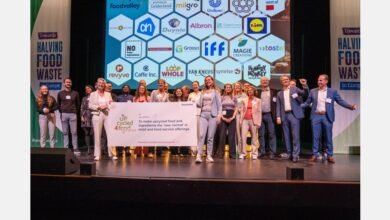Thousands of Jacksonville residents struggling to put food on table

Here in the United States, one of the wealthiest nations in the world, more than 44 million Americans face hunger and food insecurity; one in five are children. Ensuring there is enough food on the table shouldn’t still be something families have to struggle with, and yet this is the daily reality for countless Americans.
The persistence of food insecurity at this level is not just a statistic — it’s a moral crisis with our most vulnerable communities suffering the most.
Minority and low-income households experience food insecurity at significantly higher rates than the national average. In Duval County, where our outreach organization FreshMinistries works to end hunger in Jacksonville and around the world, 11% of our population is going hungry.
That is more than 110,000 friends, families and individuals in our own community who are struggling to put food on the table and provide for their loved ones.
Leading a dignified life means having access to nutritious food without worrying about where your next meal is coming from or whether you can afford to feed your children. Too many families are making difficult sacrifices that involve going without the necessities that many of us take for granted.
This must stop.
That is why our city and county are at the forefront of a new way to feed people through community efforts. Initiatives like Meals on Wings, a program serving vulnerable seniors with repackaged nutritious meals; Food Fighters, a program that delivers repackaged meals to local nonprofits and communities; and Feeding Northeast Florida, a branch of Feeding America that partners with local pantries to break the food insecurity cycle.
These agencies are rallying the community together to provide hearty and nutritious meals so no one goes hungry.
While such efforts are integral to leading through change, city by city we must double down on our commitment to end hunger for good. Addressing food insecurity means not only implementing important, individual initiatives but getting to the root of the issue and working to break the cycles causing them.
Love Lunches: Grief over son’s death spurs local woman to community service, providing meals and toiletries to disadvantaged
We must assume a collective commitment to tackling the systemic issues that perpetuate hunger, food insecurity and, ultimately, inequality. It requires us to rethink existing food systems and to prioritize the health and well-being of every member of our community. We must also provide opportunities through education and job training and placement.
At FreshMinistries, we are working within communities across Jacksonville to provide hope and fresh, locally grown, affordable produce through our aquaponics urban farms. We believe the power of collaboration creates lasting change. We also work with communities to create sustainable programs for producing food in their area, so they can continue feeding themselves.
Letters: Retired Jacksonville doctor says abortion laws not based on religion, but science
The benefits of ending world hunger are in the best interest of all of society. For example, poorer health outcomes cost local health care systems. Alleviating hunger could save the U.S. health care industry $53 billion annually, according to the Centers for Disease Control and Prevention.
Moreover, educational funds that are spent to care for students struggling with the cognitive effects of hunger could instead be put toward advancing education. Ending hunger allows us to tap into human potential. It positively impacts local and global economies, overall public health, education, and social development.
It is important to drive individual initiatives supporting the millions of Americans going hungry every day, and let’s start by recommitting to ending hunger once and for all. Let’s revolutionize the ways we think about food systems and inequality. Let’s eradicate food insecurity and children and families worrying where their next meal is coming from. Let’s eradicate hunger today.
Rev. Robert Vernon Lee III, founder and CEO, FreshMinistries, Jacksonville
This guest column is the opinion of the author and does not necessarily represent the views of the Times-Union. We welcome a diversity of opinions.
Source link




